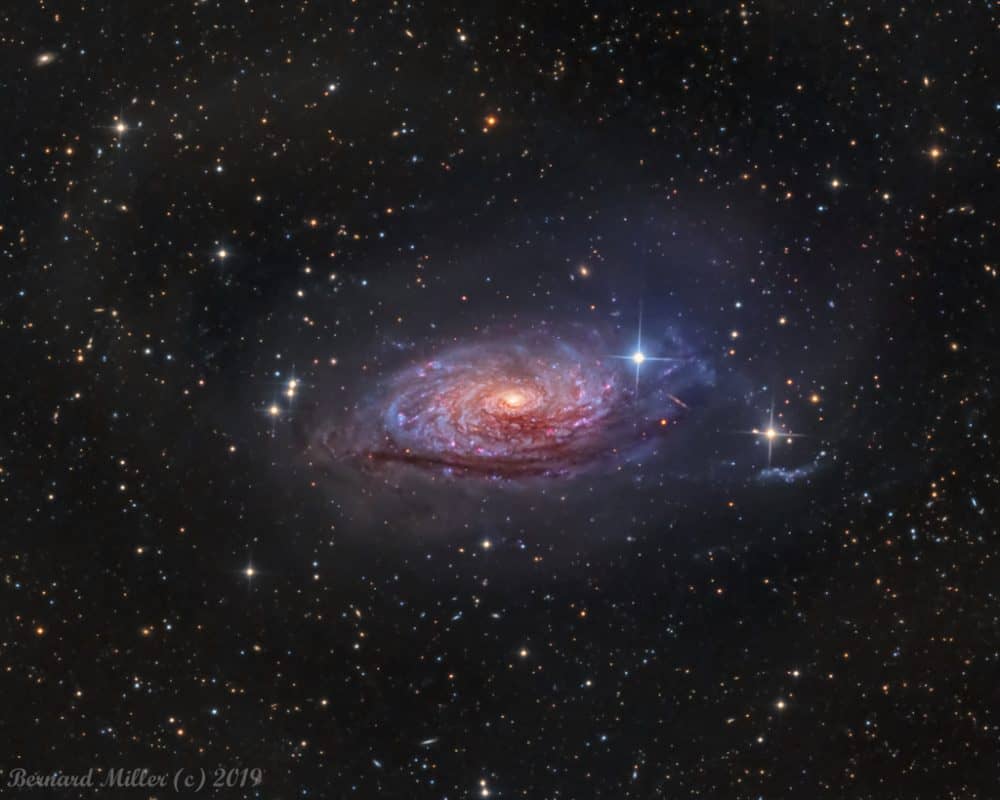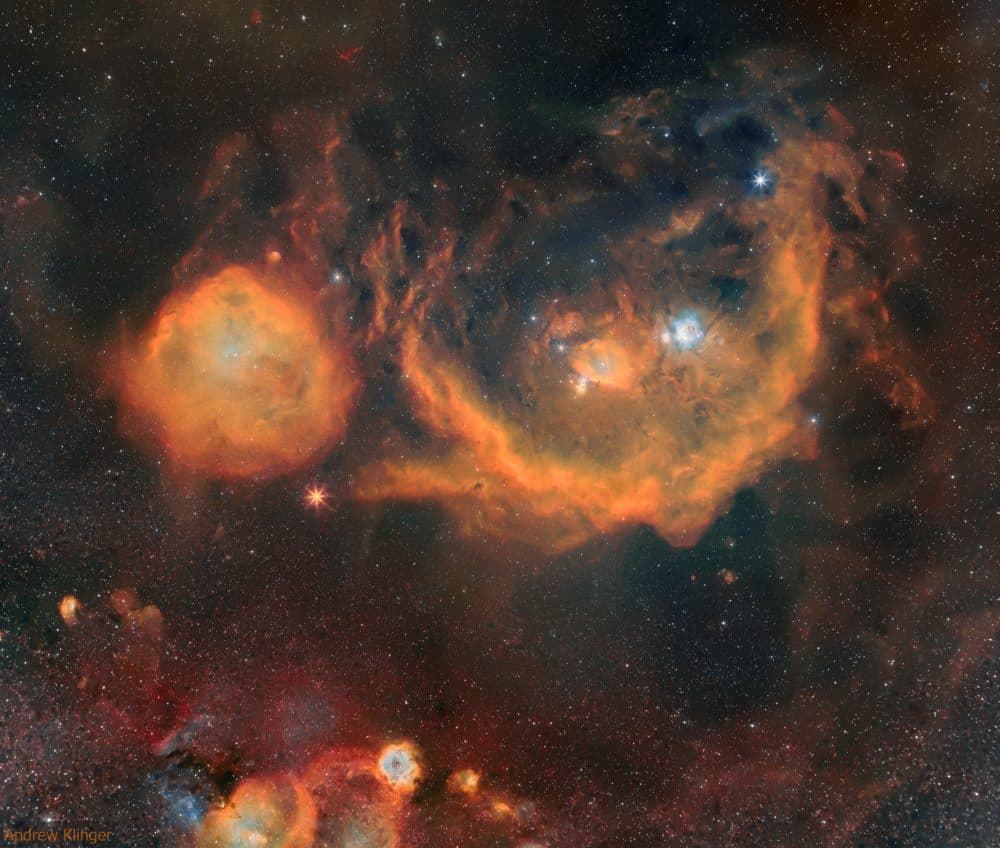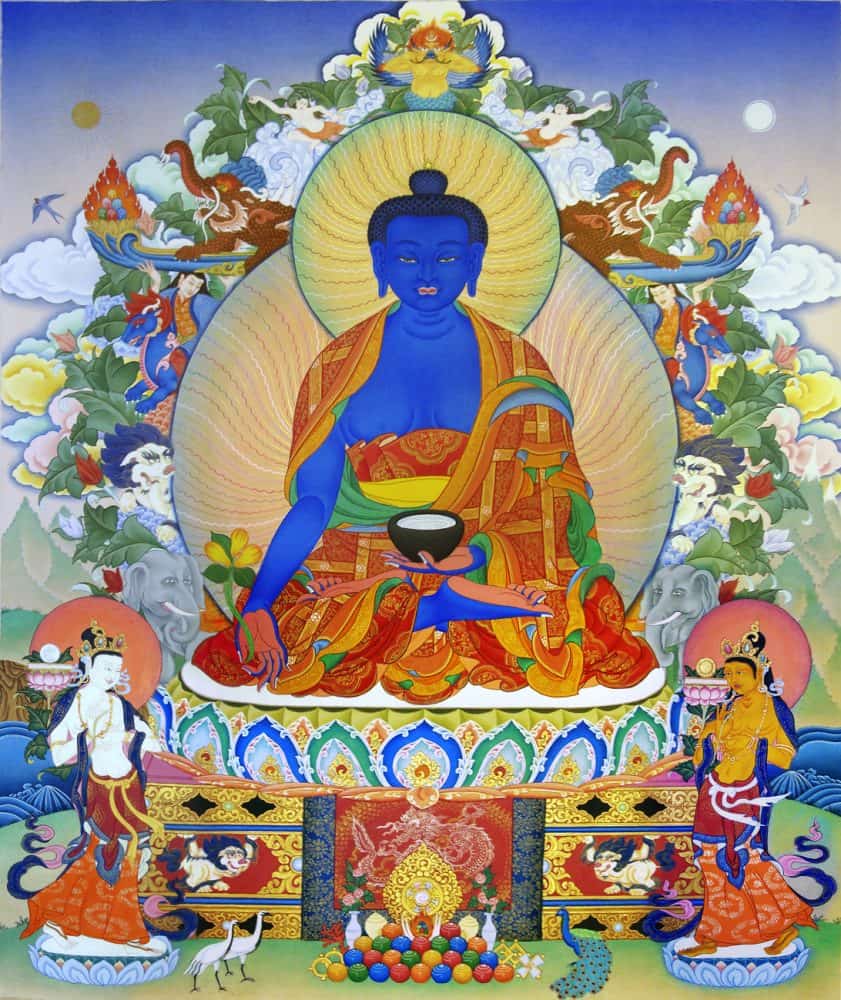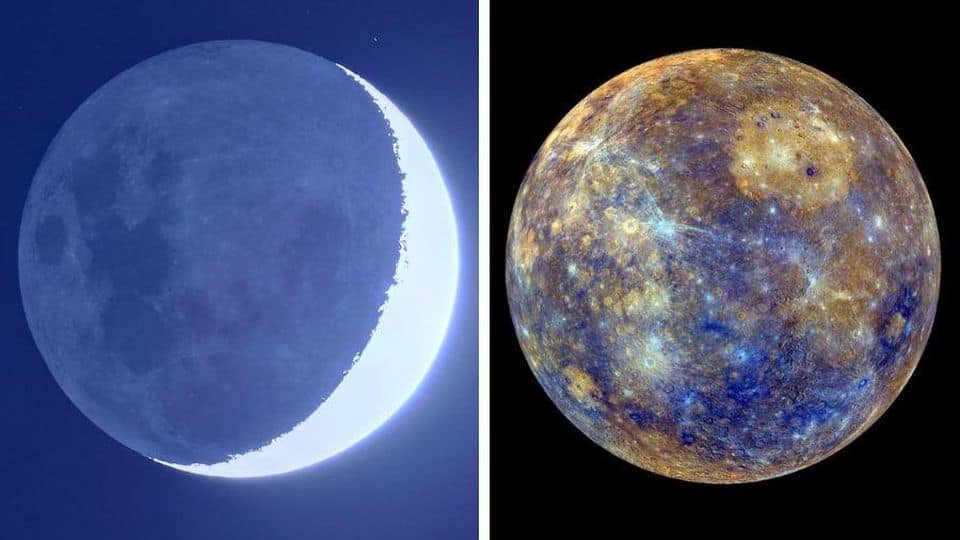Blog
A bright spiral galaxy of the northern sky, Messier 63 is about 25 million light-years distant in the loyal constellation Canes Venatici. Also cataloged as NGC 5055, the majestic island universe is nearly 100,000 light-years across. That’s about the size of our own Milky Way Galaxy. Known by the popular moniker, The Sunflower Galaxy, M63 sports a bright yellowish core in this sharp telescopic portrait. Its sweeping blue spiral arms are streaked with cosmic dust lanes and dotted with pink star forming regions. A dominant member of a known galaxy group, M63 has faint, extended features that are likely star streams from tidally disruptedsatellite galaxies. M63 shines across the electromagnetic spectrum and is thought to have undergone bursts of intense star formation.
more...Steven Siro Vai (/vaɪ/; born June 6, 1960) is an American guitarist, composer, singer, songwriter, and producer. A three-time Grammy Award winner and fifteen-time nominee, Vai started his music career in 1978 at the age of eighteen as a transcriptionist for Frank Zappa, and played in Zappa’s band from 1980 to 1983. He embarked on a solo career in 1983 and has released eight solo albums to date. He has recorded and toured with Alcatrazz, David Lee Roth, and Whitesnake, as well as recording with artists such as Mary J. Blige, Spinal Tap, and Ozzy Osbourne. Additionally, Vai has toured with live-only acts G3, Zappa Plays Zappa, and the Experience Hendrix tour, as well as headlining international tours.
Vai has been described as a “highly individualistic player” and part of a generation of “heavy rock and metal virtuosi who came to the fore in the 1980s”. He released his first solo album Flex-Able in 1984, while his most successful release, Passion and Warfare (1990), was described as “the richest and best hard rock guitar-virtuoso album of the ’80s”. He was voted the “10th Greatest Guitarist” by Guitar World magazine, and has sold over 15 million records.
more...Montgomery Bernard “Monty” Alexander (born 6 June 1944) is a jazz pianist. His playing has a Caribbean influence and bright swinging feeling, with a strong vocabulary of bebop jazz and blues rooted melodies. He was influenced by Louis Armstrong, Duke Ellington, Nat King Cole, Oscar Peterson, and Frank Sinatra. Alexander also sings and plays the melodica. He is known for his surprising musical twists, bright rhythmic sense, and intense dramatic musical climaxes. Monty’s recording career has covered many of the well known American songbook standards, jazz standards, pop hits, and Jamaican songs from his original homeland. Alexander has resided in New York City for many years and performs frequently throughout the world at jazz festivals and clubs. Alexander was born on 6 June 1944 in Kingston, Jamaica. He discovered the piano when he was four years old and seemed to have a knack for picking melodies out by ear. His mother sent him to classical music lessons at the age of six and he became interested in jazz piano at the age of 14. He began playing in clubs, and on recording sessions by Clue J & His Blues Blasters, subbing for Aubrey Adams, whom he describes as his hero, when he was unable to play. Two years later, he directed a dance orchestra (Monty and the Cyclones) and played in the local clubs covering much of the 1960s early rock and pop dance hits. Performances at the Carib Theater in Jamaica by Louis Armstrong and Nat King Cole left a strong impression on the young pianist.
Alexander and his family moved to Miami, Florida, in 1961, where he played in various nightclubs. One night Monty was brought to the attention of Frank Sinatra and Frank’s friend Jilly Rizzo. They were there to see the act in the next room, a Sinatra imitator. Somebody suggested they also check out the kid playing piano in the front room bar, “He’s swinging the room pretty good” they said. Thus, Monty was invited to New York City in 1962 to become the house pianist for Jilly Rizzo‘s night club and restaurant simply called “Jilly’s.” In addition to performing with Frank Sinatra there,Alexander also met and became friends with bassist Ray Brown and vibist Milt Jackson. He also became friendly with Miles Davis, both men sharing a love of watching boxing matches.
more...Grant Green (June 6, 1935 – January 31, 1979) was an American jazz guitarist and composer.
Recording prolifically and mainly for Blue Note Records as both leader and sideman, Green performed in the hard bop, soul jazz, bebop, and Latin-tinged idioms throughout his career. Critics Michael Erlewine and Ron Wynn write, “A severely underrated player during his lifetime, Grant Green is one of the great unsung heroes of jazz guitar … Green’s playing is immediately recognizable – perhaps more than any other guitarist.” Critic Dave Hunter described his sound as “lithe, loose, slightly bluesy and righteously groovy”. He often performed in an organ trio, a small group with an organ and drummer.
Apart from guitarist Charlie Christian, Green’s primary influences were saxophonists, particularly Charlie Parker, and his approach was therefore almost exclusively linear rather than chordal. He thus rarely played rhythm guitar except as a sideman on albums led by other musicians. The simplicity and immediacy of Green’s playing, which tended to avoid chromaticism, derived from his early work playing rhythm and blues and, although at his best he achieved a synthesis of this style with bop, he was essentially a blues guitarist and returned almost exclusively to this style in his later career.
Green was born in St. Louis, Missouri. He first performed in a professional setting at the age of 13 as a member of a gospel music ensemble. His influences were Charlie Christian, Charlie Parker, Lester Young, and Jimmy Raney, he first played boogie-woogie before moving on to jazz. His first recordings in St. Louis were with tenor saxophonist Jimmy Forrest for the United label. The drummer in the band was Elvin Jones, later the powerhouse behind sax player John Coltrane. Green recorded with Elvin again in the early 1960s. Lou Donaldson discovered him playing in a bar in St. Louis. After touring together with Donaldson, Green arrived in New York around 1959–60.
more...Some people said on this Diego Remembrance Day, it brings a tear to their eye every year. Crying nourishes our Mother Earth and all of its inhabitants! So thank you all for your tears and deep feelings of concern. It is warmly appreciated and very important to all life and all spirit.
more...3932 Cedar Ave So tree side 10am-10pm
born 9-23-95 died 6-5-02
Please stop by Vigil or visit Diegos web site today. Flowers, candles & incense welcome! Brief Visit is sufficient and helpful.
https://diego-labriola.virtual-memorials.com/main.php….
On June 2nd of 2002 Diego LaBriola was struck by a vehicle in front of 3932 Cedar Ave in south Minneapolis, Minnesota; and died on June 5th. Diego was an organ donor. Diego was a radiant beam of pure Love and inexhaustible energy. His excitement for life was as contagious as his beautiful smile.
The constellation of Orion is much more than three stars in a row. It is a direction in space that is rich with impressive nebulas. To better appreciate this well-known swath of sky, a new long exposure imagewas taken over several clear nights in January, February and March. After 23 hours of camera time and untold hours of image processing, the featured collage in the light of hydrogen, oxygen, and sulfur was produced spanning over 40 times the angular diameter of the Moon. Of the many interesting details that have become visible, one that particularly draws the eye is Barnard’s Loop, the bright red orange arc just to the right of the image center. The Rosette Nebula is not the giant orange nebula just to the left of the image center — that is larger but lesser known nebula known as the Meissa Ring. The Rosette Nebula is visible, though: it is the bright orange, blue and white nebula near the image bottom. The bright orange star just left of the frame center is Betelgeuse, while the bright blue star on the upper right is Rigel. About those famous three stars that cross the belt of Orion the Hunter — in this busy frame they can be hard to locate, but a discerning eye will find them just to the right of the image center.
more...Peter Erskine (born June 5, 1954) is an American jazz drummer who was a member of the jazz fusion groups Weather Report and Steps Ahead.
Erskine was born in Somers Point, New Jersey, U.S. He began playing the drums at the age of four. He graduated from the Interlochen Arts Academy[2] in Michigan, then studied percussion at Indiana University.
His professional career started in 1972 when he joined the Stan Kenton Orchestra. After three years with Kenton he joined Maynard Ferguson for two years. In 1978 he joined Weather Report, joining Jaco Pastorius in the rhythm section. After four years and five albums with Weather Report and the Jaco Pastorius big band Word of Mouth, he joined Steps Ahead.
He was featured on Kate Bush‘s 2005 album Aerial, where Erskine teamed with bass player Eberhard Weber. Diana Krall, Eliane Elias, Queen Latifah and Linda Ronstadt, as well as Scottish and Finnish classical orchestras, have had Erskine perform as a featured musician.
In 1983, he performed on the Antilles Records release Swingrass ’83.
In 2011, he appeared on stage at the Royal Opera House, London in the new opera Anna Nicole.
Erskine splits his time as a musician and a professor at the Thornton School of Music at the University of Southern California. In 1992, he was awarded an Honorary Doctorate of Music from Berklee College of Music.
https://www.youtube.com/watch?v=Apb0eg4AdBg
more...Jerry González (June 5, 1949 – October 1, 2018) was an American bandleader, trumpeter and percussionist of Puerto Rican descent. Together with his brother, bassist Andy González, he played an important role in the development of Latin jazz during the late 20th century. During the 1970s, both played alongside Eddie Palmieri and in Manny Oquendo‘s Conjunto Libre, and from 1980 to 2018 they directed The Fort Apache Band. From 2000 to 2018, Jerry González resided in Madrid, where he fronted Los Piratas del Flamenco and El Comando de la Clave. In October 2018, he died of a heart attack after a fire in his home in Madrid.
Jerry González was born in 1949 in Manhattan, on 158th Street and 3rd Avenue, and moved to the Edenwald Houses in the Eastchester section of the Bronx at the age of 4. He was raised in a strong musical atmosphere, with the strains of Latin, Afro-Cuban and jazz music always in his ear, establishing his musical appreciation and molding his future work as an artist. His father, Jerry González, Sr., was a master of ceremonies and lead singer for bands during the Palladium era and sang with musicians like Claudio Ferrer. In junior high school he began playing trumpet and congas and jamming with local bands. After deciding this was his calling, González completed his formal studies at New York College of Musicand New York University. He started his professional career playing with Lewellyn Mathews in the 1964 New York World’s Fair. In 1970 he started playing congas with Dizzy Gillespie. With Gillespie’s support and encouragement, González was able to fuse the African-based rhythms onto jazz elements without compromising the essence of either.
more...| Percussion legend Louie Romero has appeared on five gold records and two platinum records. Born in Brooklyn, he began playing percussion at the age of seven, inspired by his father Juan. Louie began appearing on the New York salsa scene in the 1960s. In 1967, famous trombonist and bandleader Willie Colón asked Louie to join his band after seeing him perform at New York’s Broadway Casino.
Louie was soon playing with the best musicians from salsa’s famed Fania record label, including Hector Lavoe and Ruben Blades. When Colón’s band broke up in 1977, Louie continued playing with other Fania groups, eventually recording over 20 albums for the label. He then expanded into folkloric music and jazz, playing with greats like Paquito D’Rivera. Louie moved to California in the 1980s, seeking a change of pace. In 1994, he formed Mazacote, which quickly gained a reputation as one of San Francisco’s finest salsa bands. Now, Louie is proud to release the album fans have been requesting for years: a lively CD that showcases Mazacote’s energy, musicianship, and mastery of the style. |
Saga Dawa, or the fourth month of the Tibetan calendar, starts June 4th and ends on July 2nd in 2019. This holy month includes days celebrating the Buddha’s birth, enlightenment, and passing away into parinirvana.
https://wondersoftibet.com/about-tibet/festivals/saga-dawa/
World marks 30 years since Tiananmen massacre as China censors all mention
Hong Kong (CNN)As commemorations for the 30th anniversary of the Tiananmen Square massacre take place worldwide Tuesday, any coverage or discussion of the event will be tightly censored in China.
When to see the Moon and Mercury: June 4, 2019
Look to the northwest just after sunset tonight, Tuesday, June 4, 2019, and you’ll see a 2% illuminated Crescent Moon appear in the dusk close to the horizon. That in itself will be a grand sight, and for this month only, it’s a sighting that sees the Islamic month of Ramadan officially cease. As well as the delicate crescent of light on the Moon, you should be able to make out Earthshine on the rest of our satellite. That’s sunlight reflected from Earth onto the Moon. It’s always there, but it’s only possible to detect with the human eye when the moon is very young.
more...Anthony Braxton (born June 4, 1945 Chicago) is an American composer and multi-instrumentalist who is known in the genre of free jazz.
Since the 1960s, he has released more than 100 albums. He plays many types of saxophone (soprano, alto, tenor, baritone, bass, contrabass, sopranino, C-melody, mezzo-soprano) and clarinet (E-flat, B-flat, contrabass), in addition to flute, alto flute, and piano.
Braxton studied philosophy at Roosevelt University. He taught at Mills College in the 1980s, and was Professor of Music at Wesleyan University from the 1990s until his retirement at the end of 2013. He taught music composition and music history, with a concentration on the avant-garde, as well as leading ensembles in performances of his compositions. In 1994, he was given a genius grant by the MacArthur Foundation. In 2013, he was named a 2014 National Endowment for the Arts Jazz Master.
more...Oliver Edward Nelson (June 4, 1932 – October 28, 1975) was an American jazz saxophonist, clarinetist, arranger, composer, and bandleader. He is perhaps best remembered for his 1961 Impulse! album The Blues and the Abstract Truth (1960), often regarded as being among the most significant recordings of its era. The centerpiece of the album is the definitive version of Nelson’s composition, “Stolen Moments“. Other important recordings from the early 1960s are More Blues and the Abstract Truth and Sound Pieces, both also on Impulse!. Oliver Nelson was born into a musical family. His brother was a saxophonist who played with Cootie Williams in the 1940s, and his sister sang and played piano. Nelson began learning to play the piano when he was six and started on the saxophone at eleven. Beginning in 1947 he played in “territory” bands in and around Saint Louis before joining the Louis Jordan band where he stayed from 1950 to 1951, playing alto saxophone and arranging.
More Posts
- Elmore James Day
- World Music with Namjilyn Norovbanzad
- Daily Roots with the Versatiles
- Echos of Freedom by Angela Davis
- The Cosmos with NGC 6826
- Anita Baker Day
- Huey “Piano” Smith Day
- Coxsone Dodd Day
- Stéphane Grappelli Day
- World Music with Ngola Ritmos
- Daily Roots with the Fabion
- Echos of Freedom with Maya Angelou
- The Cosmos with NGC 5963/5965
- Benny Golson Day
- Antonio Carlos Jobim Day
- Sleepy John Estes Day
- World Music with El Indio Gitano
- Daily Roots with the Harmonians
- Echos of Freedom by Nina Simone
- The Cosmos with M51








